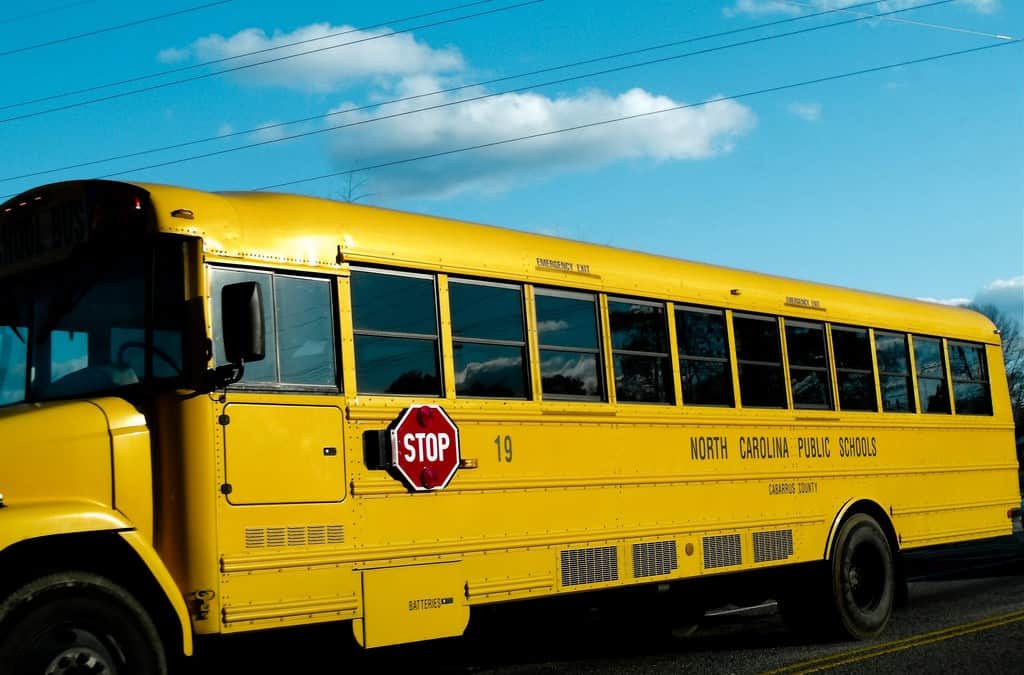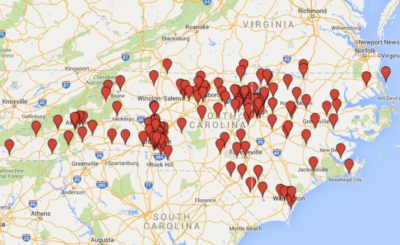

State Board of Education meetings happen monthly here in North Carolina. Packed agendas include a range of items from recognizing schools for their unique accomplishments to drawn out discussions around how to evaluate a teacher, for example.
Going forward, I’ll be using this space to recap important State Board of Ed conversations that affect the governance of North Carolina’s public schools, paying particular attention to two key issue areas that Fletcher Foundation cares about: accountability and transparency.
So with that, here are some key takeaways from December’s State Board of Education meeting.
Local school districts could tap into a 2010 law designed to give struggling schools more charter-like flexibility.
Alamance-Burlington schools chief (and former State Board of Ed chair) Bill Harrison wants to use an existing law to turn around a couple of his district’s continually low performing elementary schools, as reported here, here and here.
Lawmakers passed the legislation in 2010 as part of a set of requirements that would allow the state to receive millions of dollars in federal Race to the Top funds.
The law allows the State Board of Education to approve school districts to reform continually low-performing schools using one of four different reform models. One of those—the ‘restart’ model—would allow the district to offer a struggling school the same exemptions from statutes and rules as a charter school enjoys. Harrison wants flexibility with regard to the school calendar and how much his district can pay teachers at the low performing schools.
The law also opens the door for the school district to partner with an EMO, or education management organization.
Sounds a little like the much talked-about Achievement School District pitch that Rep. Rob Bryan was pushing behind closed doors during the last legislative session? Well, not quite—in this case the EMO would still be under the direction of the local (and elected) school board members, unlike the ASD model which places low-performing schools into an entirely new school district overseen by a politically-appointed superintendent and run by (possibly a for-profit) charter operator.
And Harrison said he’s not interested in contracting with an EMO.
It’s an interesting development that could allow districts to use existing law as a way to retain control over turning around their continually low performing schools. The State Board says they need more time to consider the pitch.
Speaking of low-performing schools…
DPI officials also gave an update on how many of the state’s newly designated 581 low-performers have submitted their state-mandated plans that lay out how they’ll improve. 364 schools have submitted plans so far, and today (Friday, December 4) is the deadline.
Some school districts aren’t too keen on this mandate, saying that the the formula for determining which schools are low-performing school is flawed and more reflective of how poor a school’s student population is, rather than how well the school is doing at working to educate its students.
North Carolina already has a virtual online public school—and it appears to be doing well.
You may have heard that the General Assembly enacted a pilot program allowing national for-profit virtual charter school operators—one of which has a pretty poor track record—to run online schools for students across North Carolina.
That development has incited a good bit of controversy that gained even more momentum when Stanford University released a recent study indicating that students attending online schools don’t really learn much of anything over a year’s time.
What you may not have heard is that North Carolina already has a public virtual school that’s been in operation for nearly a decade (NCVPS). The school says they’re the nation’s second largest state-led virtual school with over 55,000 enrollments in the 2014-2015 school year. And they appear to be getting pretty good results, too, according to their annual report as presented to the State Board this week: students taking AP courses online do better on AP exams than their traditional classroom counterparts at the state and national levels.
There are key differences between the two types of programs, however—NCVPS only offers coursework to middle and high school students, whereas a kindergartner can attend school online through one of the new for-profit virtual charter schools. Students enroll in NCVPS through their local public schools in order to access the virtual public school.
Nonetheless, it will be interesting to see over the course of time just how well the state’s new for-profit virtual charter schools ensure that students do as well as their traditional classroom counterparts—and their virtual public school counterparts.
NCLB/ESEA/ESSA…the mammoth, eight-year-old federal law finally passed the House.
And it sounds like it’s got a good chance at passing the Senate and getting the President’s approval, according to DPI’s Lou Fabrizio.
The bill, a whopping 1,059 pages, does a lot of things–but chiefly, it does this: it gives states a lot more control, undoing No Child Left Behind mandates that directly inserted the federal government into dictating accountability measures for schools.
It still requires districts to administer annual exams in reading and math in grades 3-8. But states get to determine how to evaluate teachers and develop academic content standards, and there’s no longer federal sanctions when schools don’t meet federal accountability benchmarks — it’s up to the states to figure out how to hold schools accountable.
And states can no longer get ‘waivers’ to opt out of current requirements that the federal law imposes.
Vox.com has a nice explainer on the latest draft of the bill here.
The State Board of Education’s vice chair, Buddy Collins, said he was ‘cautiously optimistic’ about the legislation, saying it’s possibly better than what we have and moving everyone in the right direction.
Implementing the provisions of the bill will be a long haul and a good bit of work for DPI in the years ahead.
Charter schools on notice
SBE members were informed that four charter schools are currently on notice for inadequate academic performance. There were no questions asking why the schools were underperforming.
SBE members also got an update on a revised draft policy regarding how to revoke a school’s charter. No longer is there a choice for the State Board of Education to do nothing when it comes to their attention that a charter school is not doing a good job. Seems like a smart change.
Twice-retained third graders get more help
Under the Read to Achieve law, third graders that have been held back twice per this legislative mandate get more supplementary tutoring outside of the school day. The State Board voted to funnel more funds to local districts to support these efforts.
School bus stop signs are not something to ignore
The State Board voted to fund the installation of more cameras in some school buses to document when drivers blow past school buses’ stop signs so that those drivers can be prosecuted.
If you have any question that that this is a really good use of tax dollars, then I encourage you to watch this video.
Video Credit: North Carolina Department of Public Instruction


